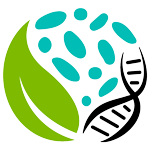ALD1 regulates the basal immune components and early inducible defense responses in Arabidopsis
Nicolás M. Cecchini, Ho Won Jung, Nancy L. Engle, Timothy J. Tschaplinski, and Jean T. Greenberg
26 March 2015, Molecular Plant-Microbe Interactions 28(4): 455-466; doi: 10.1094/mpmi-06-14-0187-R
Abstract
Robust immunity requires basal defense machinery to mediate timely responses and feedback cycles to amplify defenses against potentially spreading infections. AGD2-LIKE DEFENSE RESPONSE PROTEIN 1 (ALD1) is needed for the accumulation of the plant defense signal salicylic acid (SA) during the first hours after infection with the pathogen Pseudomonas syringae and is also upregulated by infection and SA. ALD1 is an aminotransferase with multiple substrates and products in vitro. Pipecolic acid (Pip) is an ALD1-dependent bioactive product induced by P. syringae. Here, we addressed roles of ALD1 in mediating defense amplification as well as the levels and responses of basal defense machinery. ALD1 needs immune components PAD4 and ICS1 (an SA synthesis enzyme) to confer disease resistance, possibly through a transcriptional amplification loop between them. Furthermore, ALD1 affects basal defense by controlling microbial-associated molecular pattern (MAMP) receptor levels and responsiveness. Vascular exudates from uninfected ALD1-overexpressing plants confer local immunity to the wild type and ald1 mutants yet are not enriched for Pip. We infer that, in addition to affecting Pip accumulation, ALD1 produces non-Pip metabolites that play roles in immunity. Thus, distinct metabolite signals controlled by the same enzyme affect basal and early defenses versus later defense responses, respectively.
Citation
Molecular Plant-Microbe Interactions 2015 28:4, 455-466
Outside Links
http://apsjournals.apsnet.org.proxy.lib.utk.edu:90/doi/abs/10.1094/MPMI-06-14-0187-R
http://www.ncbi.nlm.nih.gov/pubmed/25372120

